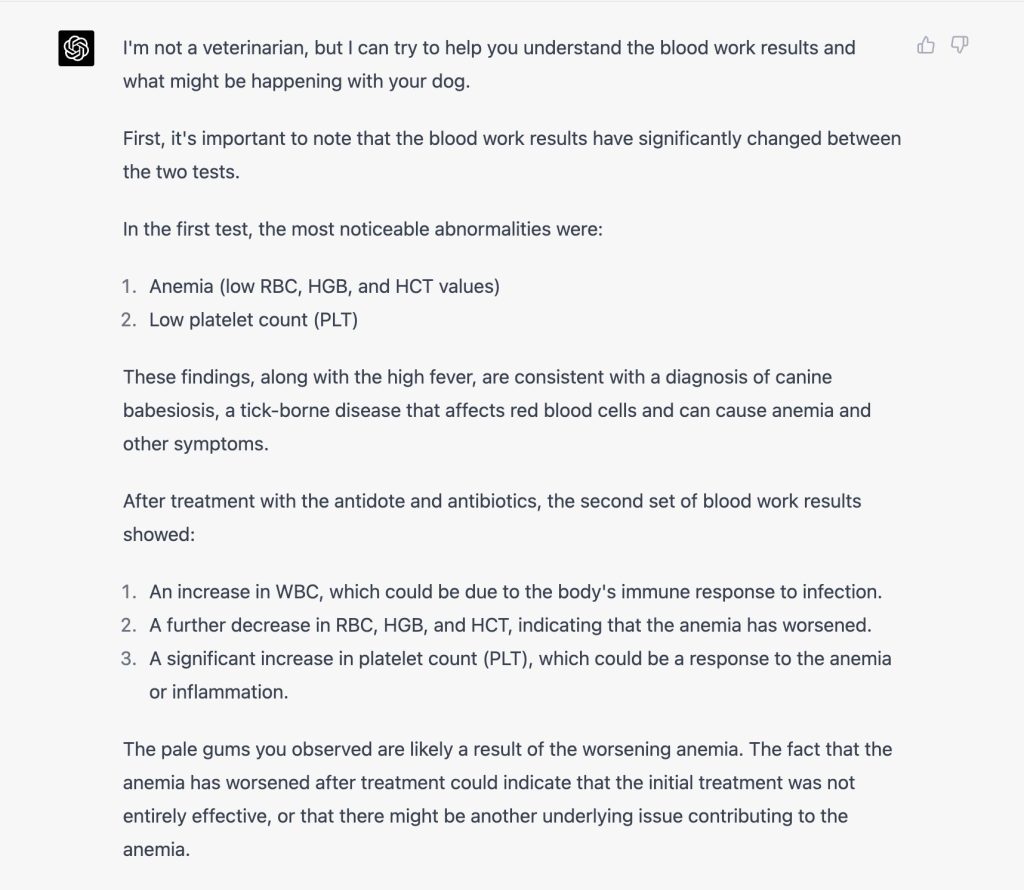
A few weeks ago, OpenAI released its new GPT-4 with an ability to answer more specific questions than its predecessor. In this way, you can create larger and more complex documents with various data, including medical diagnoses.
This is how a user on Twitter has recounted her case and how GPT-4 saved the life of her dog. Twitter user Peakcooper reports that her dog had a tick-borne disease that her vet was treating. However, days after her improvement, her gums were pale and seemed unwell again, tests found that she had severe anemia. Because of this, further testing was done to rule out a coinfection associated with tick-borne diseases, but it came back negative. At that point, the vet had no idea what was wrong with the dog and advised waiting to see how she reacted.

At this, the owner was not willing to wait and decided to enter all the blood results and see what could diagnose GPT-4. The artificial intelligence begins by saying that he is not a veterinarian and that some of these diseases could present to her dog. The owner ruled out some that came out in the tests and was left with the fact that her dog could have hemolytic anemia mediated by the immune system (IMHA), that is, autoimmune. So he decided to go to a second veterinarian, he asked her if her dog could suffer from IMHA and after some tests, this disease came back positive.
Finally, with the right treatment, the dog is much better. The owner comments that with GPT-3.5 she cannot give this type of diagnosis that GPT-4 can. In the same way, he condemns the incompetence of the first veterinarian and that he cannot imagine what would have happened to his pet without GPT-4.
